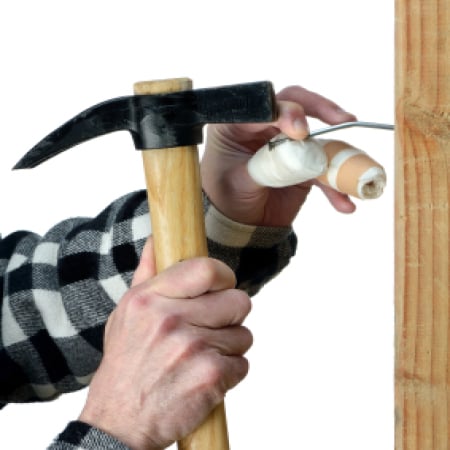What’s Your Role In the Homebuilding Or Remodeling Process?
 Maybe you’re seriously considering building a new home—or remodeling your existing home in the Middletown area. Chances are pretty good that you’re not going to actually be doing the building or remodeling yourself. But just because you’re not handy with a hammer or skilled with a saw doesn’t mean you don’t have an important role to play in the homebuilding or remodeling process. And no, I’m not just talking about writing the check, either!
Maybe you’re seriously considering building a new home—or remodeling your existing home in the Middletown area. Chances are pretty good that you’re not going to actually be doing the building or remodeling yourself. But just because you’re not handy with a hammer or skilled with a saw doesn’t mean you don’t have an important role to play in the homebuilding or remodeling process. And no, I’m not just talking about writing the check, either!
Any homebuilding or remodeling project is a collaborative effort. It’s something you and your builder work on together. You may not be pounding nails or cutting boards, but there are things you can do that will make the whole process go much more smoothly—and help you get the kind of results you really want.
If you’re planning on building a new home or remodeling your existing home, you need to be prepared for some hard work. And here’s a bit of advance warning: Some of the hardest work doesn’t involve hammers or saws. It’s communicating with your builder.
Related: Should I Build or Remodel?
Communication may not sound like a big deal, but good communication can eliminate a lot of problems—and stress—from the homebuilding or remodeling process. Here are a few things that can make communicating with your builder or a bit easier—and more effective.
Build an atmosphere trust: This needs to start before construction begins. It should be a significant factor in choosing your contractor. Before you even sign a contract, make sure you feel confident of your builder’s skill and integrity. Later, when you run into some tough spots (and you will!) this confidence will help you to avoid second-guessing him.
Go to the source: It’s really important to talk to your builder—not about him. If you have a problem with your builder or with something he’s doing, tell him about it. Don’t assume he knows that something is bothering you. He may not be aware of the issue. And keep in mind that your builder really does want to please you. He relies on your recommendations to get new business.
Talk to the boss: Your builder may bring in subcontractors for certain tasks, but you still want to talk to your builder about changes or potential problems. The builder is the one who has the big picture. The subcontractor may not have all the information—or understand how a small change can affect the whole project. That’s why your building needs to be a little bit of a “control freak.” He understands how all the parts come together.
Talk regularly: Set up regular meetings to talk about progress and problems. A weekly meeting with your builder is a good time to get updates on the schedule, raise issues and discuss any changes to be made. The earlier your builder knows about issues you have, the easier it is for him to address them. If you have regular meetings, you’re more likely to uncover potential issues while they are still easy—and less expensive—to address.
The best way to see if a builder is the right one for you is to have a brief face-to-face. At Sunwood, we make that easy for you. You can schedule a free design consultation that will give you some great ideas for your home—and give you a sense for what it would be like to work with us. It’s a great way to make sure communication with your builder gets off on the right foot!






